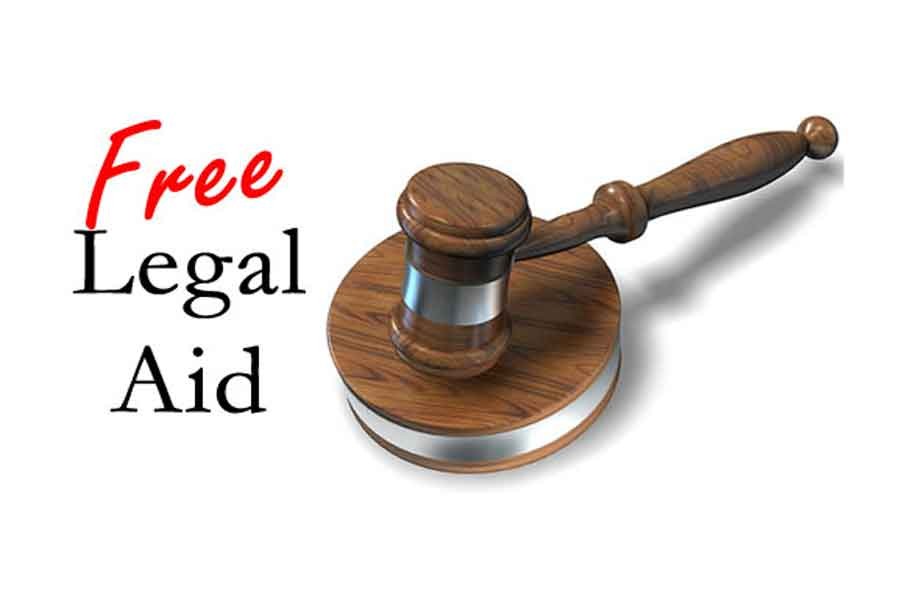Easy and cheaper access to justice is a fundamental human right. But unfortunately, an alarmingly huge backlog of unsettled cases jamming lower courts in Bangladesh indicates that justice is denied to the poor litigants in most cases. It often takes years and decades to have disputes resolved. The government, however, has made arrangements for free legal aid for the poor so that they could get justice delivered. Even to facilitate this, it has raised the income ceiling of the poorer people who are entitled to free legal aid services during the 2017-18 fiscal. From now on, people who annually earn less than Tk 2,50,000 could avail free legal aid.
Officials of the Law Ministry say others who are entitled to the facility are women or men above 65 years having annual income of less than Tk 3,00,000. The others who would get the facility are people with disabilities with annual income of less than Tk 4,00,000 and gazetted war-wounded freedom fighters with annual income of less than Tk 4,25,000.
The ceiling was raised at the recent 35th meeting of the National Legal Aid Services Organisation (NLASO). Earlier, people with annual income of less than Tk 1,50,000 were entitled to the free legal aid at the Supreme Court and people, whose annual income was less than Tk 1,00,000, could get the opportunity at lower courts.
The Universal Declaration of Human Rights has strictly provided that justice must not be restricted. Inaccessible justice is justice denied. So access and legal aid both are equally crucial to ensure justice for poor people. Even Sustainable Development Goals (SDGs) essentially focus on rights-based development. That is why those who work in the judiciary and provide legal aid have an important role to play in Bangladesh's pursuit of its SDG targets.
It indeed speaks well of the government's commitment when it established 64 district legal aid offices, in each of which a senior assistant judge is tasked with overall coordination. Since 2015, these offices have been carrying out pre-case and post-case mediation, which is a kind of alternative dispute resolution (ADR) mechanism. Several non-government organisations like Bangladesh Rural Advancement Committee (BRAC), Bangladesh Legal Aid and Services Trust (BLAST) and Ain o Salish Kendra (ASK) have initiated steps in free legal aid, but a close collaboration should be established among all the initiatives by the government and NGOs. In that way, ensuring effective coverage of legal aid services across the country will be possible while avoiding overlapping.
It is interesting to note from a survey as to why the complainants come to alternative dispute resolution (ADR). Three overlapping factors are found: bad relation between complainant and defendant, defendant's hostile behaviour with complainant and demand for dowry from defendant's side. At the initial stage, relatives and family members try to solve the issue. When it does not work, they go to local institutions such as village arbitration bodies. When that also fails, they come to ADR. When the disputants are not satisfied with the decision of ADR, the complaint is taken to court. In many cases defendants, for fear of court, come back again to ADR.
It was found that in 89.6 per cent cases, the ADR decision was reunion of the disputants and in 10.4 per cent cases, the decision was given for divorce. Most of the disputants were satisfied with the decision reached through ADR. In 97.4 per cent cases, ADR decisions were fully implemented. The money received through ADR decision was used for both productive and non-productive end with 76 per cent disputants completely satisfied with the way compensation was managed or spent. Regarding income generating activities, 13 per cent used to earn before ADR, which increased to 22.3 per cent after ADR, the survey said.
Badly needed now is mass awareness of free legal aid services now being provided in Bangladesh as touts and other elements might stand in the way of blocking access of the poor to justice. The elective bodies like upazila parishad and union parishad can trake up the task of publicising the free legal aid services.


